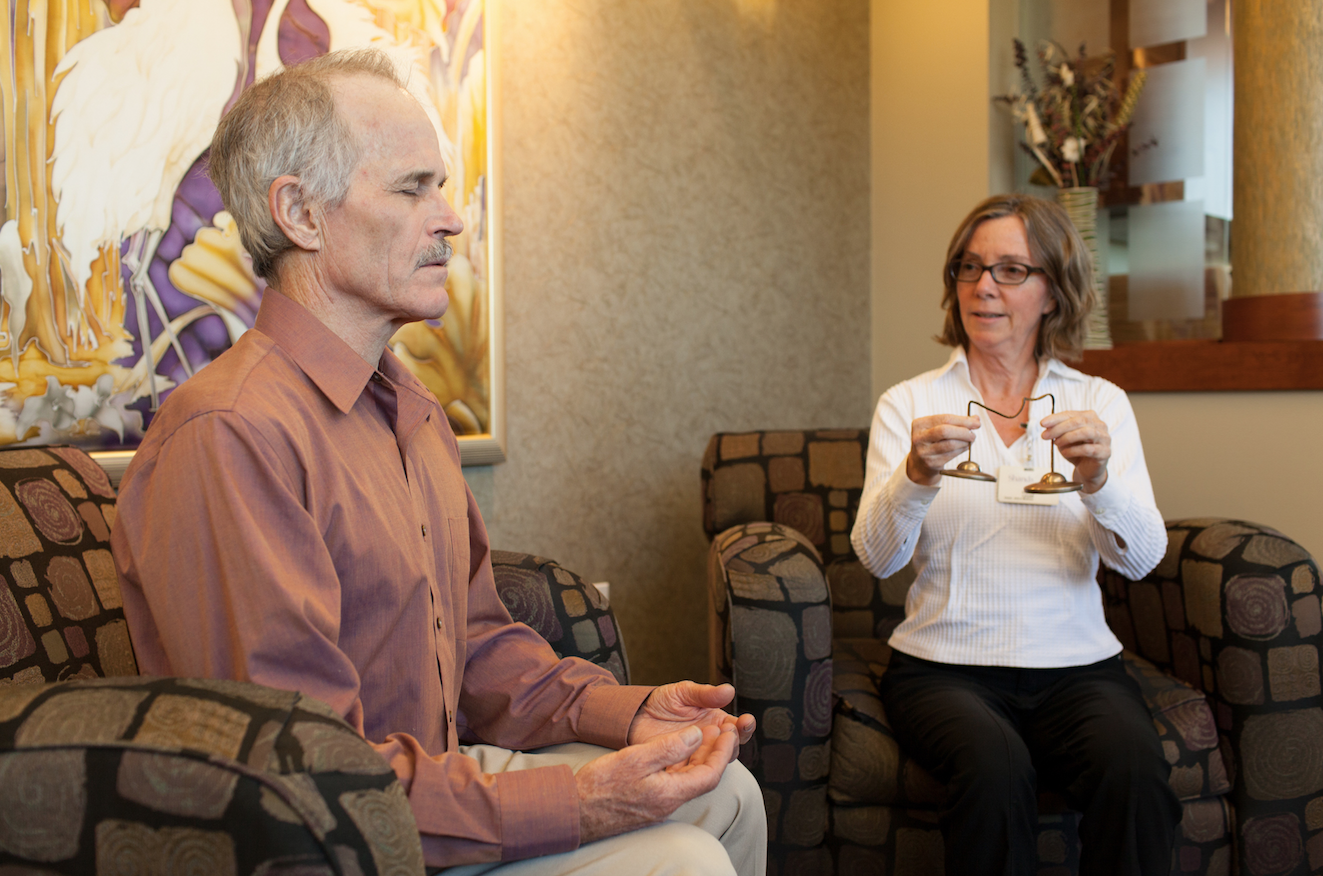By Teal Garth | Photos Courtesy of UF Health
UF Health Shands Hospital is known as a place that houses the latest medical techniques and technological advancements, but health care isn’t always all about the actual medicine. It is often about providing the emotional support patients need, or rather finding a balance between the two.
After about two years of planning, proposals and hard work, the Supportive Oncology Program was introduced at Shands in August to help find that balance. The program offers both integrative medicine and palliative care to cancer patients.
The integrative medicine side of the program is designed for patients who want to take a more holistic approach in their treatment. This can include techniques such as acupuncture, meditation, massage therapy, and botanical and dietary supplement guidance. Palliative care is all about providing emotional support for patients struggling with grief, or primary care support for patients experiencing symptoms that aren’t being moderated by their treatment. The decision to experiment with holistic medicine or palliative care programs could come from a patient’s desire to be more mindful of not only their physical health, but also their emotional, mental and social well-being.
“Medicine has become so complex and in ways disjointed, that it was an attempt to kind of fill in the gap and give an added layer of support to patients who need it,” said Dr. Jessica Schmit, one of the three doctors overseeing the program.
Schmit has a background in hemotology and oncology, but has always had an interest in palliative and end of life care, which is the side of the program she is most involved in. Her co-workers in the program are Dr. Irene Estores and Dr. Paige Barker. Estores specializes in sports medicine and integrative medicine, and Barker works in internal medicine and palliative care.
While most patients are introduced to the program through other oncologists, any medical provider can refer a patient if they believe the extra support would be helpful. A patient will discuss the details of their treatments and status of their cancer with a primary oncologist, but how they are actually coping with the cancer sometimes gets left out.
A common misconception with palliative care is that it is only for end-of-life patients, but Schmit sees patients in every stage, some even fully recovered. A patient visit for her can mean anything from dealing with a primary care issue, like blood pressure, to pain management, depression and even end of life planning.
“These are things that patients need to talk about and sometimes don’t get the opportunity,” she said.
An estimated 75 patients have taken advantage of the program in the six months it has been running. In addition to working with the Integrative Medicine department, the program also works closely with the Psycho-Oncology, Interventional Pain Medicine, Pharmacy, Nutrition and Physical Therapy departments, but Schmit hopes to expand the palliative care to more than just cancer patients.
“Wellness is important for all people, and [the program] just kind of gets at that whole idea of mind, body, spirit holistic wellness,” said Schmit.

